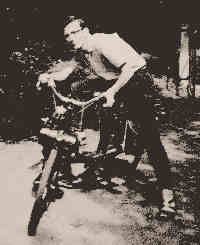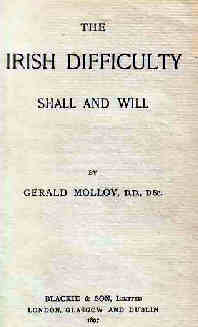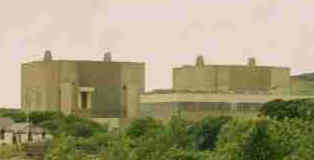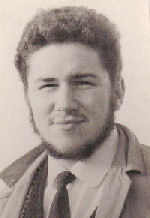Language
Teaching English
Teaching English is a revelation. Not just about the vagaries of the English language but about human nature. My first efforts at teaching English were in 1963, when, on leaving school, I briefly became an "au pair" boy (moniteur), looking after four young French lads between the ages of 9 and 15 and, supposedly, teaching them English. The looking after was one thing, just about within my range. Teaching English was another. That was Maman's idea, no doubt preparing for globalisation ahead of her time. For the lads it was a fad and a chore which they had no intention of rising to. The only one of them who had the faintest interest had been to Bournmouth for the summer and had gotten the message that English was for real and people actually spoke it, people who could not understand French. Nevertheless, he had spent his time in the company of other French students so his lack of English was not a life or death issue.
My first efforts at teaching English were in 1963, when, on leaving school, I briefly became an "au pair" boy (moniteur), looking after four young French lads between the ages of 9 and 15 and, supposedly, teaching them English. The looking after was one thing, just about within my range. Teaching English was another. That was Maman's idea, no doubt preparing for globalisation ahead of her time. For the lads it was a fad and a chore which they had no intention of rising to. The only one of them who had the faintest interest had been to Bournmouth for the summer and had gotten the message that English was for real and people actually spoke it, people who could not understand French. Nevertheless, he had spent his time in the company of other French students so his lack of English was not a life or death issue. Faced with producing an "end of term report" for the parents, I opted to do a tape recording of Cinderella with my cast of 4 reluctant frenchies. Given their lack of progress, this was, of necessity, recorded line by line, and in some cases even word by word. It eventually thrilled the pants off both Maman and Papa. God forgive me.
Faced with producing an "end of term report" for the parents, I opted to do a tape recording of Cinderella with my cast of 4 reluctant frenchies. Given their lack of progress, this was, of necessity, recorded line by line, and in some cases even word by word. It eventually thrilled the pants off both Maman and Papa. God forgive me.Learning French was no less bizarre. I arrived in France, in 1963, with very good Leaving Cert written French (there were no orals in those days). The family were, sort of, nobility. There had been a general in the family on the mother/granny's side and all the adults spoke proper. The granny was very concerned with the deterioration in the quality of French spoken by the youth of the country in general and her own daughter's children in particular.
Meanwhile I was trying to converse in French, my ultimate ambition being to effortlessly speak the same colloquial brand of French spoken by the children and of which the granny was so critical. I had to think in English, translate into French in my head, mentally repeat the result three times and then deliver it before it evaporated.
Clearly in granny's view I was speaking prose, as had de Gaulle before me, and the house resounded to her loud exhortations to the children "Écoutez Paul", listen to Paul (ie speak prose). The irony of it.

Talking proper
I never realised I didn't speak the Queen's English until I was working in Jersey in 1961. I was working for British Railways at the main counter in St. Helier. One of my jobs was putting stamps on packages which were to be shipped to the "mainland". One day I got a phonecall from the port complaining that I had sent down a package without a stamp. My immediate reply: "Impossible, I'm just after putting a stamp on it". The reply took me aback: "Are you sure you're not just before putting a stamp on it?" Who, I thought, is this idiot. But it appears it was me that was the Leprechaun. What I had said was not standard English. What should I have said? It took me about five minutes to work out that I should have said "I've just put a stamp on it".Irish and English usages diverges very sharply when it comes to "shall" and "will". English usage is complex varying with person and distinguishing between a statement of fact and one of intent. Irish usage is simpler: we say "will" all the time and, as far as I know, we hear "will" all the time. This can lead to serious misunderstandings which can infuriate the English and of which the Irish are totally unaware.
In 1897, when all this sort of stuff mattered, Dr. Gerald Molloy, DD, DSc, felt obliged to write a small volume for the instruction of the Irish servant class entitled "The Irish Difficulty, Shall and Will". I have a copy of it but it really is unintelligible to me. The English must be a very clever race entirely to master this sort of stuff.
Confusion can also arise from daily greetings. Again in Jersey, I remember one evening after a hard days work going into the TV lounge in the guest house and greeting the assembled TV viewers with a breezy "goodnight". This didn't go down too well for some reason.
It was only much later that I discovered the subtle difference between "good evening" and "good night". The latter meant "one of us is leaving for bed" and as I had just arrived and was plonking myself in the easy chair, it clearly wasn't me.
Language is a funny thing, but interesting.
Class
 It can be a class thing too. Someone once pointed out to me the linguistic origins of lamb/mutton, cow/beef, pig/pork. In each case the first, non French word was the live animal, at least, as far as these islands are concerned. The second was live in France and dead in England. The moral of the story being that the natives cultivated the live animals and the Normans didn't have to deal with them until they turned up dead (and cooked) on the table.
It can be a class thing too. Someone once pointed out to me the linguistic origins of lamb/mutton, cow/beef, pig/pork. In each case the first, non French word was the live animal, at least, as far as these islands are concerned. The second was live in France and dead in England. The moral of the story being that the natives cultivated the live animals and the Normans didn't have to deal with them until they turned up dead (and cooked) on the table.
I came across a recent example in Caernarfon, North Wales, where the street down the side of the town hall had a bilingual sign. In English it was, unsurprisingly, Shirehall St - the seat of local government. In Welsh it was, unsurprisingly, Stryd y Jêl - where the revolting natives were incarcerated.
Easy insults
 While we're in Wales. I once stayed on a farm in mid Wales for a fortnight, to learn a bit of Welsh. I was learning through BBC records, folk songs, road signs, attempted conversations with bean a' tí and any other opportunity that presented itself. At the end of each day I was exhausted and turned to English in my conversations with bean a' tí.
While we're in Wales. I once stayed on a farm in mid Wales for a fortnight, to learn a bit of Welsh. I was learning through BBC records, folk songs, road signs, attempted conversations with bean a' tí and any other opportunity that presented itself. At the end of each day I was exhausted and turned to English in my conversations with bean a' tí. Says I: "You have the great advantage of having Welsh from the cradle while I have to try and learn it though grammar and in other devious ways." A non-commital piece of conversation you might think, and a sort of a compliment to my host's Welsh. Not so. The reply came fast: "But we know lots of grammar".
I was stunned and uncomprehending. What had I said? I had clearly insulted the lady but how?
It took me a while to figure out. Sure, they had Welsh from the cradle. That was not the point. Grammar had to do with English which was, as in Ireland, the language of advancement. I had inadvertently accused her of having ungrammatical English, a cardinal sin for those seeking advancement.
It taught me that what is said and what is heard are not always the same thing, depending on where you are coming from. I think its called communication.
Nuclear option
 Speaking of which, I remember in the seventies when the ESB were thinking of setting up a nuclear power station at Carnsore Point in county Wexford.
Speaking of which, I remember in the seventies when the ESB were thinking of setting up a nuclear power station at Carnsore Point in county Wexford. Ray Burke, Dublinman and then Minister for Energy, went on telly, on the Late Late Show, physically based in Dublin (Montrose) but effectively operating in cyberspace. In an attempt to console his (Northside Dublin) constituents he pointed out that we were as near to the Welsh nuclear station in Trawsfynydd as we would be to that in Carnsore.
No great consolation to the people of Wexford on whose doorstep the new plant would be.
Another lesson, know your medium and not just your physical surroundings.
Translation
Translation is often a much underrated skill. The translator not only has to capture the meaning of the original text, but has to do so faithfully. This often means being as aware of what the text is avoiding saying as of what it says.The difficulties are compounded when it comes to interpretation (ie translation on the fly) and my own experience of this would have been at EU or EU related meetings. The EU is a veritable Tower of Babel, and would be even more so were it to attempt to cope with regional languages - which, of course, it doesn't. The myriad of difficulties has been further compounded with the arrival of another ten or more members. We'll just have to wait and see how this pans out in practice.
My own favourite nuance occurred during the negotiations in Paris setting up the European Bank for Reconstruction and Development (EBRD) in early 1990. The Chairman, Jacques Attali, was becoming very impatient with the delegates' preoccupation with details, particularly the financial ones, which he felt was obstructing his own personal efforts to advance the European project.
 We had got to discussing the financing of the Country Directors' Offices when Attali finally lost patience and had a go at the delegates in a fine burst of French invective. I caught the eye of one of the UK delegation and had to look away. I then noticed that virtually all of those who were following the English language interpretation had lowered their heads and were trying to avoid eye contact with each other.
We had got to discussing the financing of the Country Directors' Offices when Attali finally lost patience and had a go at the delegates in a fine burst of French invective. I caught the eye of one of the UK delegation and had to look away. I then noticed that virtually all of those who were following the English language interpretation had lowered their heads and were trying to avoid eye contact with each other.The English language interpreter had just had Attali say: "We are here trying to create a new European Institution and you are arguing about the price of the furniture and the quality of the typewriters. Next thing you will be disputing the size of the rubbers!"
Thank God for a taste of the Queen's English for a change. But you can't be too careful these days.
Tooshayvoos
 How did I get this far down the page without giving a specific example from the Irish language. I have referred to the "Gaelic" script elsewhere and how it has now given way to "Roman" script. One man who is still carrying the flag, at least as far as the oral tradition in Ballybrack is concerned, is Deasmhumhain MacGearailt.
How did I get this far down the page without giving a specific example from the Irish language. I have referred to the "Gaelic" script elsewhere and how it has now given way to "Roman" script. One man who is still carrying the flag, at least as far as the oral tradition in Ballybrack is concerned, is Deasmhumhain MacGearailt. The modern Irish spelling for his "christian" name would be Deasún, but this loses all the resonance with the FitzGeralds of Desmond, which really was South Munster, or "Deas" and "Mumhan". Deasmhumhain has kept the resonances by insisting on spelling his name in the traditional way.
The modern Irish spelling for his "christian" name would be Deasún, but this loses all the resonance with the FitzGeralds of Desmond, which really was South Munster, or "Deas" and "Mumhan". Deasmhumhain has kept the resonances by insisting on spelling his name in the traditional way. He has also kept the slender consonant at the end. The modern version would actually changes the pronounciation of the name.
Not only that, he spells it with the "Gaelic" script as in the illustration. Note the lenition on the two "m"s which make them silent. These dots are called "séimhiú"s in Irish and Deasmhumhain was known locally as "two séimhiús" (pronounced tooshayvoos).
Deasmhumhain told me recently that Joe Heaney (one of Ireland's foremost sean nós singers, sadly no longer with us) overheard him explaining the derivation of his nickname and remarked "Two shaves? You never had a shave in your life!" Judge for yourself!